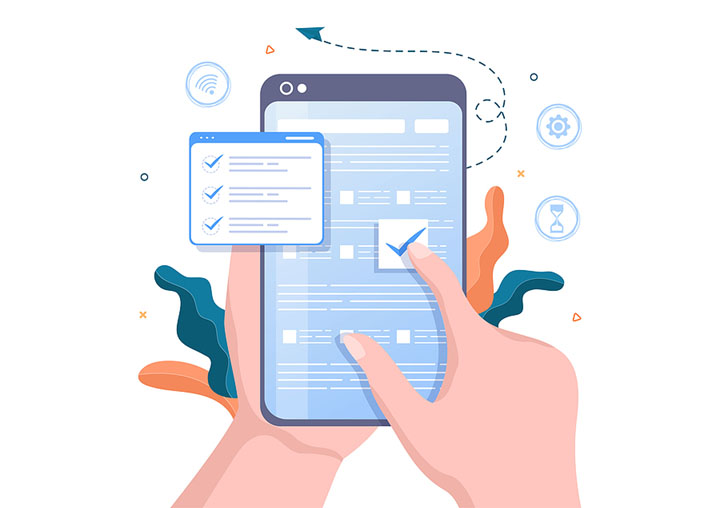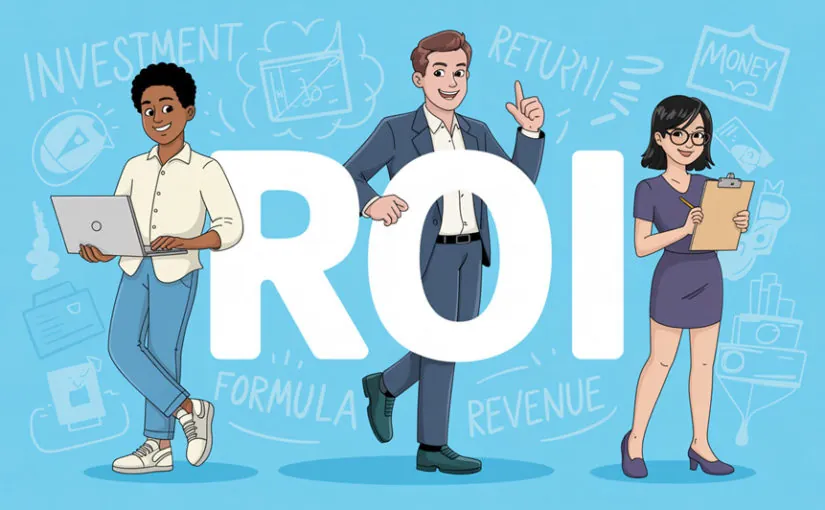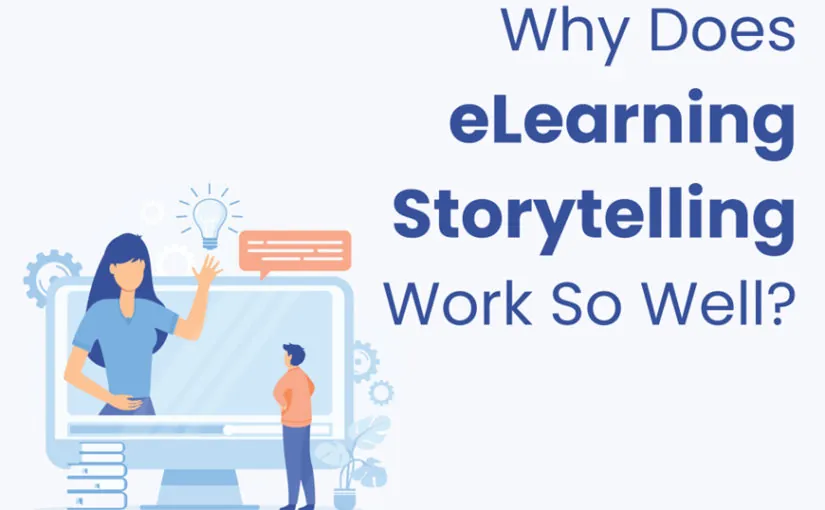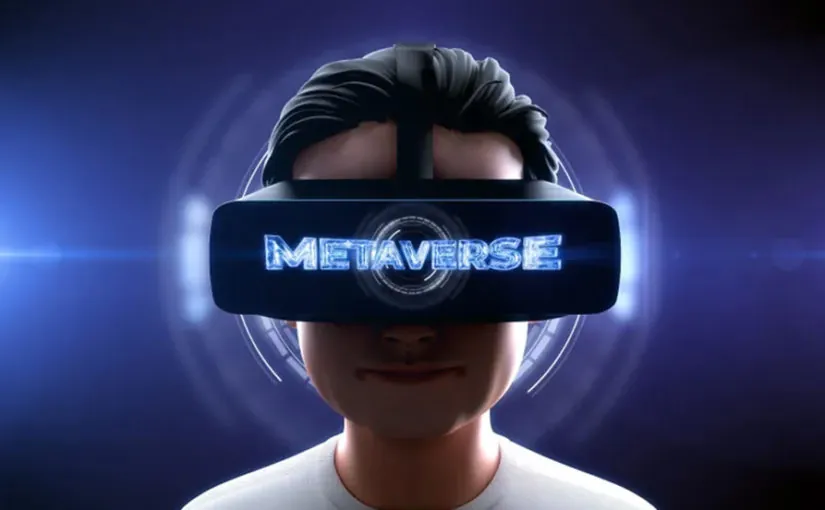
In today’s workplace, where collaboration and communication are essential for success, soft skills have become increasingly important.
Soft skills are the personal attributes that enable individuals to interact effectively and harmoniously with others. Soft skills training is a method used to develop these skills that has gained widespread popularity in many workplaces.
But what exactly is soft skills training, and why is it so important?

What are Soft Skills?
Soft skills are abilities that all employees can theoretically learn or develop. They don’t require specialist skills or extended periods of study. They strengthen an employee’s ability to effectively communicate with, collaborate with, or persuade colleagues.
Soft skills are generally domain agnostic, meaning that they work just as well in accounting as they would do in your R&D or marketing departments, for example. Another way of thinking of soft skills is that they are extended life skills, which you can apply at home in certain situations (negotiation skills might come in handy when trying to get the family into the car for a holiday, for instance).
Sometimes these skills are otherwise referred to as “power skills,” a term that better sells their value in the workplace. These types of skills have become more popular than ever among employers and recruiters.
A quote from a recent Forbes article states that “the proportion of companies addressing empathy and interpersonal skills doubled in 2020. Between 2019 and 2020, skills like leadership and management became a much bigger priority for most companies, jumping ten percentage points year over year, from 40% to 50%.”
Why would this be? One explanation could be that as workplaces become more remote, it is more of a challenge to maintain effective relationships, with colleagues meeting face-to-face less frequently. We lose the subtleties of body language and non-verbal communication when all we do each day is write emails and make phone calls.
Some classic soft skills include:
- Conflict Resolution
- Decision Making
- Aural and Written Communication
- Empathic Leadership
- Critical Thinking
- Networking and Deal Making
- Problem-Solving
Often these skills are framed as abilities that prepare people for leadership roles or build better managers. However, the above skills would benefit anyone working in a collaborative environment.
Let’s look a little more closely at each one.
1: Conflict Resolution
Every workplace has conflicts from time to time. Whether it’s disagreements over strategy or a feeling one colleague is being underappreciated, small differences of opinion can swell to toxic proportions if not quickly resolved.
Conflict resolution teaches strategies for talking through issues in a safe environment and reaching compromises or adjusting behaviour without causing offence or assigning blame.
This is a skill that might primarily benefit leaders but would also help anyone working in a highly pressurised environment where people collaborate closely.
2: Decision Making
This soft skill teaches logical methods for weighing up options and reaching a conclusion backed by evidence. Good decision-making courses recognise that some decisions must be made in the heat of the moment, while still maintaining that there are methods for reaching sensible conclusions even in those situations.
Decision-making study includes notions of data-gathering, stakeholder identification, checking assumptions, weighing probabilities, and other components of rational problem-solving.
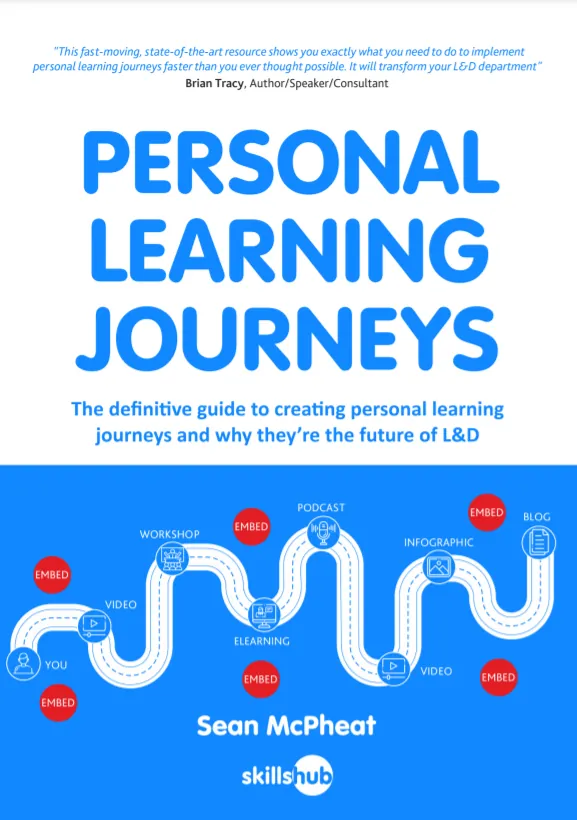
Learn How To Create Personal Learning Journeys For FREE!
3: Oral and Written Communication
There are wonderful writers terrified of public speaking, and great oral communicators who lack the concentration and writing abilities to compose an intelligible report. This soft skill aims to produce well-rounded communicators across all media.
A well-designed course should consider a whole range of types of communication, from composing a sales email to delivering a keynote speech or conversing in popular foreign languages such as French and Spanish. Communication skills are valuable to engender in every employee from the mailroom to the c-suite.
4: Empathic Leadership
By contrast, empathic leadership is clearly aimed at managers and executives. It’s a style of leadership which aims to dig beneath surface problems that employees face to reach the underlying issues. Empathic leadership teaches that everyone has reasons for their beliefs and causes of their behaviour and that it benefits a leader to look a little deeper.
Empathic leadership could include modules on discipline, mentorship, training, cultural sensitivity, motivation, and supporting employees in crisis.
5: Critical Thinking
This subject is linked to decision-making but relates to larger-scale intellectual challenges such as project management or strategic planning. It teaches good practice in sourcing, evaluating, and acting upon data.
Critical thinking helps build strengths in observation, reflection, reasoning, and communication and mitigates many of the common flaws in thinking. It is particularly good for leaders devising corporate strategy or managing change.
6: Networking and Deal Making
These skills are particularly good for people working in HR or sales since these roles involve a lot of negotiation and deal-making. Lessons derived from psychology, sociology, and economics can be applied to human behaviour to help employees learn the subtle arts of persuasion.
Sub-skills that form a part of this soft skill include listening, understanding wants and needs, communicating benefits and value propositions, overcoming objections, and closing deals.
7: Problem-Solving
This is another managerial soft skill that would also benefit lower-level employees who work on projects in close-knit teams. It fits alongside decision-making and critical thinking to build well-rounded strategic skills.
Problem-solving typically includes elements of active listening, analysis, research skills, consultation, planning, and team-building. Project managers would benefit significantly from such a course.
These are just seven of the most common soft skills. Others you might expect include emotional intelligence, creativity, change management, cultural and diversity awareness, time management, and self-care.

Why are Soft Skills Important?
While professional and academic qualifications and work experience are important to many roles, arguably soft skills are vital to all roles. This doesn’t mean that HR managers should expect candidates to fulfill a lengthy shopping list of soft skills, though.
Rather, having strengths in a subset of these skills can suggest a commitment to workplace learning that sets soft-skilled candidates above the rest. Indeed, the evidence backs this up. A 2016 Wonderlic study revealed that 93% of employers considered these skills “essential” or “very important.”
More recently, LinkedIn reported that 91% of talent professionals considered these skills of major importance.
So why do these HR professionals and leading employers rate soft skills so highly? There are several reasons:
- These skills are universally applicable across a range of job roles, departments, and sectors.
- Soft skills can improve a candidate’s performance in every aspect of their role, from thinking creatively to problem-solving, to dealing with conflict and giving a presentation.
- These skills are highly transferable from one role to another, and from one sector to another.
- If an employee has these skills, they’ll fit in more easily with a new team and can hit the ground running.
- HR professionals can save money on training if new starters already possess critical thinking, communication, and interpersonal skills.
- Possessing soft skills implies that a candidate is motivated and keen to better themselves. Whereas other work qualifications are mandatory, soft skills are often gained when a worker volunteers to participate in self-improvement.
For employers and HR professionals, the possession of soft skills gives them the confidence that they’ll be working with a committed and hard-working individual who functions well in teams.
Training Soft Skills in the Workplace – Strategies and Methods
Since there are so many soft skills, it’s impossible to give a complete rundown here of how they ought to be taught. However, there are some universal approaches that help promote and advance these skills.
1: Reinforce the transferability and universality of soft skills. If workers can see how easily these abilities will complement their professional qualifications and experience, they’ll be keener to participate.
2: Stress that soft skills are applicable beyond the workplace. Unlike role or task-specific training, soft skills such as negotiation or critical thinking can be used in our day-to-day lives. Therefore, by taking such classes, learners become better people.
3. Use examples, testimonials, and roleplay. Most soft skills are experiential. They must be demonstrated in order to get the point across. Negotiation or conflict resolution skills must be practised, which means your teaching materials have to maximise the opportunities for learners to try out newly acquired skills.
4. Consider project work as well as interactive learning. Even the most engaging, interactive, and gamified e-learning platform may not be able to capture the complexity of some soft skills (such as written communication or problem-solving). It may be necessary to include extended project work as part of your soft skills course.
5. Make it fun. Soft skills shouldn’t be a painstaking trawl through theory and book learning. They are practical skills, which means you can involve guest speakers, and use humour, games, roleplay, and other enjoyable methods to boost engagement. Even with a purely online course, you can enlist humour, challenges, and personal testimonials.
6. Keep your courses up to date. By their very nature, soft skills often involve psychological and sociological theories which can change over time. New techniques and strategies are devised and a panoply of books, online courses, video content, and other training materials become available. Keeping your course current is essential and make sure it’s uploaded onto your eLearning Platform.
Follow these six principles and there’s a good chance that your soft skills course will be fit for purpose, engaging and effective.

What are Examples of Soft Skills To Look For in Employees?
As we’ve already discussed, there are many soft skills courses on offer on eLearning platforms, ranging from broad-based topics to highly specific subjects.
What might help is to group them into categories. Here then is a breakdown of a dozen of the popular soft skills courses commonly found.
Interpersonal Skills:
- Conflict Resolution
- Leadership Skills
- Public Speaking
- Empathy
- Networking Skills
Intellectual Skills:
- Critical Thinking
- Decision Making
- Problem-Solving
Productivity Skills:
- Time Management
- Written Communication
- Motivation and Attitude
- Wellbeing and Self-Care
How Can You Identify Soft Skills?
It can be challenging for employers and recruiters to identify soft skills in an employee. Of course, it’s possible to list these skills on a CV, and even give course details, if a formal program of study has been undertaken.
However, since most of these skills are about personal development and don’t convey formal qualifications, it can be difficult when selecting candidates to know for sure which of them have these skills. Without grades, how do you assess ability?
This is where key interview techniques come in, where hypothetical questions can be asked to gauge problem-solving, negotiating, or empathic leadership skills (for instance).
You can also ask “give me an example of…” open questions such as ‘“give me an example of…” which let the candidate tell a personal story that hopefully illustrates soft skill learning.
Here are three sample questions interviewers might ask, plus the skills they elucidate:
- An employee has had an argument with their line manager, is angry, and threatens to walk out. What do you do? [Empathic Leadership]
- Tell us about a time you faced a practical problem that required collaboration. What steps did you take? [Problem-Solving, Team Building]
- Your manager tells you that the deadline you’re working to has to be cut by one week. What do you do? [Time management, Decision Making]
Soft Skills vs Hard Skills
When looking at a candidate, it’s important to balance both soft and hard skills. Interestingly, soft skills are more universal than hard skills. An administrator may have a handful of hard skills but may possess a wide range of soft skills, given the many different stakeholders they work with daily.
Some roles will be more soft-skill-heavy than others, but all candidates, from entry-level graduate roles to executives, require a combination of both. Therefore, it pays for businesses to offer a range of soft skill e-learning courses so that employees who feel their skills mix needs upgrading can do so.
Conclusion
Soft skills are considered vital to any new hire. They are also prized when HR teams consider internal candidates for promotion. Therefore, it pays both employers and employees to make in-house soft skill training available.
It’s important to note that soft skills are not “soft” in the sense of being easy or unchallenging. In truth, many soft skills take years to acquire and refine. However, these vital lessons can also last a lifetime, so they repay effort many times over.
Skillshub has created an online learning platform and LMS that includes many readymade soft skills courses. In addition, you can create a bespoke eLearning course using our range of intuitive learning templates.
Why not check out some of our soft skill eLearning content, or explore some of our other articles on workplace learning?
Get in touch today for more information.

FAQs
What is soft skills training?
Soft skills training refers to the training of interpersonal, intellectual and productivity skills that can be delivered through in-person training, or via online learning platforms, where the learner works through interactive modules at their own pace. For some soft skills, it’s best to use a combination of both approaches.
What is the difference between soft skills and hard skills?
Soft skills are wide-ranging intellectual and behavioural skills that translate across a wide range of domains, both in and out of work.
Hard skills are job-based skills that often convey professional qualifications, and which are specific to a particular role or topic.
What are soft skills otherwise known as?
Soft skills are sometimes known as interpersonal skills, essential skills, or power skills.
What are the top five soft skills to look for?
The most popular and sought-after soft skills are:
- Empathic Leadership
- Oral and Written Communication
- Problem-Solving
- Conflict Resolution
- Negotiation and Persuasion
All of these soft skills have clear applications for business and revenue generation, which probably explains their prominence.
What are the benefits of soft skills in an employee?
Employees who possess soft skills are considered well-rounded and adaptable. They can easily be slotted into teams, and they both lead and collaborate well. They tend to be empathic leaders or reliable team players who are not afraid to contribute and tackle problems head-on.
Can soft skills be taught?
Any skill can be taught, and soft skills are no exception. Obviously, some personalities will take to certain skills with more ease than others. However, most soft skills have a universality that makes them explicable to most, if not all, employees.
Because soft skills involve a lot of personal experience and reflection, rather than rote learning, they may be easier to teach than hard skills. Learners already possess the seeds of soft skills; the teacher or teaching materials merely draw them out.
Employees can sometimes feel constrained by being given long lists of mandatory training courses to complete. However, if you offer the possibility of strengthening their personal development plan through soft skills, explain how desirable such skills are, and offer a choice of courses, then upskilling feels like a more enticing prospect.
If you’re ready to level up your L&D strategy with the help of an eLearning company, check us out here at Skillshub if you are looking for eLearning content.








